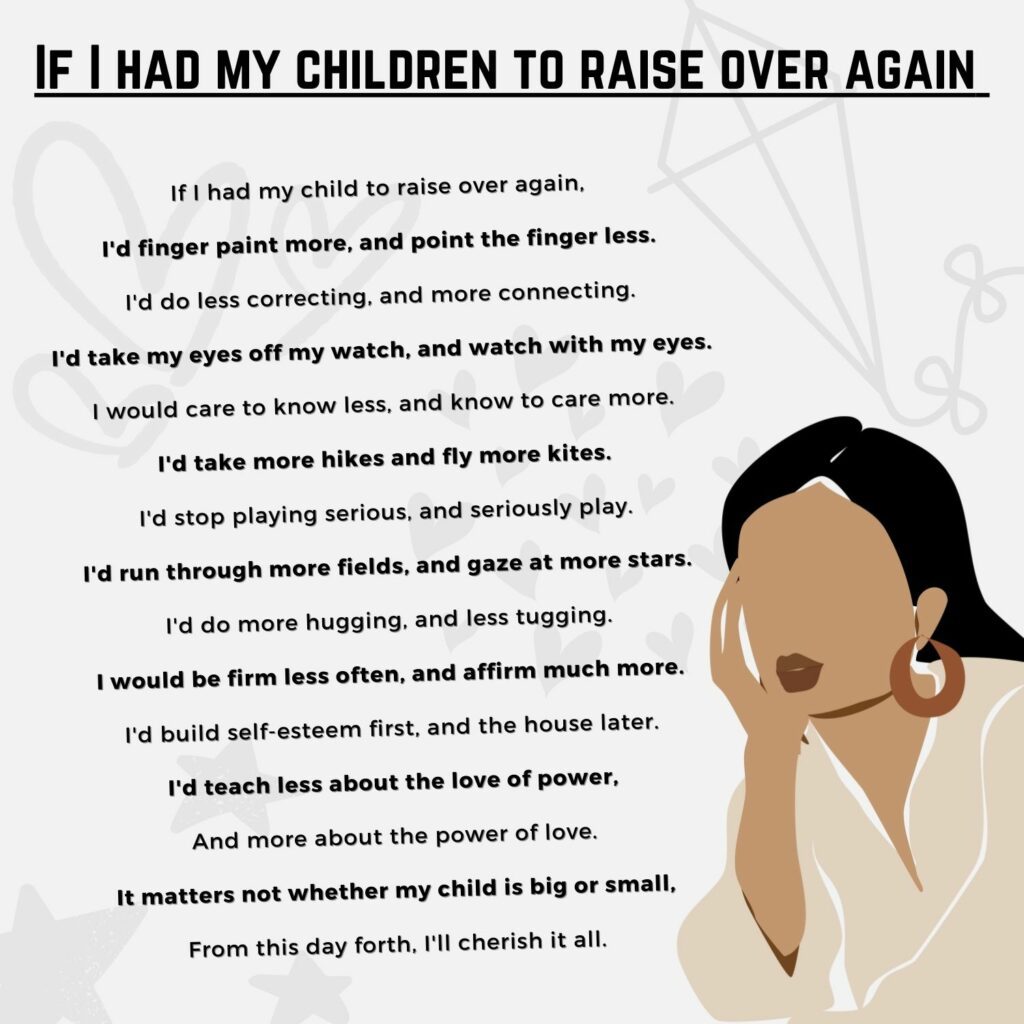Embarking on the homeschooling journey can be both thrilling and daunting for moms. It’s like stepping onto a roller coaster ride with a backpack full of textbooks and a heart bursting with aspirations. However, amidst the excitement and noble intentions, it’s crucial to acknowledge that homeschooling isn’t always smooth sailing. Just like any other venture, it has its fair share of pitfalls. In this article, I’ll shed light on moms’ seven biggest homeschool failures that make even the most organized kitchen table feel like a chaotic classroom. But don’t worry. I’m not here to add fuel to the fire; instead, I’m armed with solutions to help you avoid these blunders and make homeschooling a great experience for you and your children.

I hope you enjoy reading this blog post. If you want to do my course on how to homeschool, click here.
We’ll take a look at three homeschool failures I see often:
- Not deschooling your children before homeschooling
- Giving up too early
- Making home education too much like school education
- Insisting children finish all their homework, even if they know the material
- Not allowing children to make mistakes without jumping down their throat immediately
- Letting the stigma of homeschooling get to you
- Believing the world will fall if the house is messy
Being aware of these homeschool failures before you start educating can help you avoid them and put into place a plan of action to counteract them.
Not Deschooling (a Common Homeschool Failure)
Picture this: after enduring six long months in a school that your child isn’t enjoying, you decide to switch to homeschooling.
However, without allowing for a period of deschooling, you might encounter a major roadblock.
Asking your child to immediately jump into another six months of structured curriculum can lead to a negative perception of homeschooling.
So, how can you avoid this homeschool failure and ensure a smooth transition?
Deschooling, my friend, is the secret ingredient to success.
Deschooling involves the process of deinstitutionalizing individuals from their previous school experiences.
It’s about creating a space where learning feels exciting and fun once again.
By taking a break for a few months, you’ll allow your children to unwind and rediscover their natural love for learning.
Remember those days when their curious minds would bombard you with a never-ending stream of questions?
Deschooling aims to recapture that spirit.
During this period, you encourage your children to forget the notion that education equals “boring” or, even worse, “painful.”
It’s a time to relax and engage in enjoyable activities that spark their curiosity.
By distancing them from the school environment, you allow them to explore their interests and regain their enthusiasm for education.
Failing to prioritize deschooling before diving into homeschooling can lead to a frustrating experience.
Without this essential phase, your children may resist educational activities or anything reminiscent of the school setting.
Giving Up Too Early (a Common Homeschool Failure!)
In the words of American politician Newt Gingrich, “Perseverance is the hard work you do after you get tired of doing the hard work you already did.”
This quote encapsulates the essence of a successful homeschooling journey.
It’s not always smooth sailing from the start.
You may find yourself grappling with unfamiliar laws, unsure of the best curriculum to choose, or facing criticism from others.
It’s easy to feel overwhelmed and contemplate giving up, thinking that homeschooling just isn’t the right fit for your family.
But here’s the truth: Rome wasn’t built in a day, and neither is a successful homeschool.
When you embark on the homeschooling adventure, there are numerous aspects to figure out.
Questions arise, such as:
- What curriculum will best suit your children’s needs?
- How do you handle the naysayers who question your choice?
- And how will your children successfully transition to adulthood and contribute to society?
At times, it may seem tempting to throw in the towel and declare homeschooling a failure, especially when these doubts arise just a couple of weeks into the journey.
However, it’s crucial to remind yourself to persevere and keep going.
Don’t believe for a moment that homeschooling, or you as a parent, are inadequate.
Instead, recognize that it may require some fine-tuning and problem-solving to overcome the initial challenges.
Two weeks is hardly sufficient time to truly evaluate if homeschooling is a better fit for your family compared to traditional schooling.
Give it more time – a year, perhaps – to truly immerse yourself in the experience.
You’ll find that many of the initial concerns and hurdles fade away as you become more familiar with your own personality, your children’s unique traits, and their individual learning styles.

Avoiding the School-at-Home Trap: A Common Homeschool Failure!
One of the biggest mistakes new homeschool moms make is attempting to replicate school practices within the walls of their own homes.
This misguided approach can lead to frustration, burnout, and even prematurely sending children back to traditional schools without addressing the underlying issues.
There are two significant problems with trying to recreate a school environment at home:
- The Stress and Strain: Unless approached with a significant degree of flexibility, adopting a strict school-at-home model can be overwhelming and exhausting for parents. The pressure to meet rigid schedules and expectations adds unnecessary stress to the homeschooling journey.
- Stifling Learning: Implementing a rigid school-at-home model hampers the natural love of learning and fails to capitalize on the best homeschooling methods available for long-term success. This approach limits creativity, exploration, and personalized learning experiences.
Now, don’t get me wrong—I’m not suggesting that you should avoid using prepackaged curricula from reputable homeschool providers, some of which overlap with Christian school curriculum materials.
The key is to embrace flexibility and be comfortable with your children not completing every single task assigned.
Certain curriculum providers tend to overload their materials, making it impossible for children to accomplish everything within the given timeframe.
For instance, BJU Press (which I love and use) occasionally does this.
While their curriculum may be of high quality, parents must recognize that it’s not always necessary to complete every single component.
So, what should you do instead?
Take a moment to explore the diverse range of homeschooling methods (you can use this quiz to help you)and select the one that aligns best with your needs and preferences.
Personally, I find the relaxed eclectic homeschooling method, with a focus on Charlotte Mason and Classical approaches, quite appealing.
This method allows you to cherry-pick the elements you appreciate from various educational methods and seamlessly incorporate them into your homeschooling routine.
It also promotes flexibility in other aspects, such as determining the ideal duration of study sessions each day (three hours being average, but you can choose less) and deciding which days to dedicate to studies (many homeschoolers opt for a four-day week).
These options can bring a sense of relaxation and reignite your children’s passion for learning.
Letting Go of Excessive Homework – A Homeschool Pitfall
In the world of homeschooling, it’s not uncommon to encounter curriculum packages that contain what can only be described as “busywork.”
This term refers to repetitive and unnecessary homework tasks that children already have a solid understanding of.
Unfortunately, these elements often find their way into curricula designed for traditional schools, where they serve the purpose of filling up the designated hours students spend in the classroom.
However, as homeschooling moms, insisting that our children complete excessive busywork at home is not only a failure in our approach but also counterproductive to their learning journey.
It simply doesn’t make sense when we have the freedom to explore alternative activities that truly engage their minds and nurture their love for learning.
Moreover, subjecting our children to such monotonous work may breed bitterness towards education and create challenges when it comes to motivating them in the future.
So, here’s a friendly reminder: give yourself permission to let go of the notion that all the work must be done all the time.
As homeschooling parents, we have the privilege of selecting and customizing our children’s education.
We can prioritize meaningful activities and skip over unnecessary repetitions.
By doing so, we free up valuable time for more enriching experiences that align with their individual interests and foster genuine intellectual growth.
Instead of insisting on completing every single task, take the opportunity to evaluate the curriculum you’ve chosen.
Identify those components that contribute to busywork and consider alternative approaches or resources that promote deeper engagement and critical thinking.
Embrace the flexibility that homeschooling affords you and your children, allowing them to explore subjects in ways that ignite their curiosity and passion.
By freeing yourselves from excessive busywork, you create a more vibrant and enjoyable learning environment, one that nurtures a genuine love for education.
Not Letting Your Kids Make Mistakes Without Jumping Down Their Throats Immediately
Allow me to share a heartwarming story that resonates with the power of embracing mistakes:
In the delightful book, A Second Helping of Chicken Soup for the Soul, there is a tale recounted by Stephen Glenn about a renowned research scientist who had achieved remarkable medical breakthroughs.
During an interview with a newspaper reporter, he was asked what made him exceptionally creative and set him apart from others.
The scientist shared an insightful childhood experience that shaped his perspective.
When he was around two years old, he attempted to retrieve a milk bottle from the refrigerator.
Unfortunately, his tiny hands lost their grip, and the bottle fell, creating a vast puddle of milk across the kitchen floor.
However, instead of scolding, lecturing, or punishing him, his mother responded with unexpected warmth.
She exclaimed, “Robert, what a great and wonderful mess you have made! I have rarely seen such a huge puddle of milk. Well, the damage has already been done. Would you like to get down and play in the milk for a few minutes before we clean it up?”
Enthusiastically, he embraced the invitation.
After enjoying some playful moments, his mother gently guided him toward a valuable lesson.
She explained, “You know, Robert, whenever you make a mess like this, eventually you have to clean it up and restore everything to its proper order. So, how would you like to do that? We could use a sponge, a towel, or a mop. Which do you prefer?”
Together, they cleaned up the spilled milk, using a sponge as their tool.
His mother then proposed a new experiment.
Recognizing the failed attempt to carry the bottle with his small hands, she suggested they go to the backyard and fill it with water.
They wanted to explore ways to carry it without dropping it.
Through this process, the young boy discovered that grasping the bottle near the lip with both hands allowed him to transport it successfully.
What a valuable lesson he learned!
The scientist reflected on this pivotal moment and realized that he no longer needed to fear making mistakes.
Instead, he understood that mistakes were opportunities to learn something new.
This understanding aligns perfectly with the essence of scientific experiments—they offer valuable insights even if the desired outcome is not achieved.
Adopting such a generous attitude towards mistakes can profoundly impact our relationship with our children.
It allows us to become their best friends, creating a nurturing environment where they can freely explore, learn, and grow.
By embracing this mindset, we gift them a childhood worth cherishing, where mistakes are not met with reproach but seen as stepping stones towards knowledge and personal development.

Letting the Stigma of Homeschooling Get to You
Homeschooling brings its own set of challenges, and one of the toughest hurdles to overcome is the criticism and stigma surrounding this educational choice.
Many homeschooling parents can relate to the feeling of needing more patience to handle outsiders’ judgment than actually teaching their children at home.
One mother aptly described her experience, emphasizing the need for resilience in the face of criticism:
Homeschooling is a breeze compared to defending our choices or responding to criticism and ignorance! It’s not homeschooling itself that requires extra patience, but rather dealing with the naysayers.
Indeed, it can be disheartening when family members, such as a skeptical mother-in-law, express doubts about your children’s education, questioning their academic progress or social development.
However, there are effective strategies for handling homeschooling doubters:
- Let your children’s achievements speak for themselves. When they grow up to become successful, well-rounded individuals who contribute positively to society, it becomes evident that homeschooling was the right choice. Time and again, former critics of homeschooling have become staunch advocates after witnessing the impressive outcomes firsthand.
- Equip yourself with homeschooling statistics. Familiarize yourself with research and data that highlight the benefits and successes of homeschooling. This knowledge can serve as a valuable tool during conversations with doubters, providing evidence-based support for your educational approach.
In addition to these practical strategies, personal convictions and faith can play a significant role in finding strength and confidence.
For those with a strong faith in Jesus, it can be comforting to remember that ultimate judgment lies with a higher power.
Prioritizing one’s conscience and seeking divine guidance through prayer can provide reassurance and peace, enabling parents to focus on their children’s well-being rather than worrying about societal opinions.
The Pitfall of Prioritizing a Clean House Over Homeschool Joy
Some parents make the mistake of valuing a spotless home over a fulfilling homeschooling experience, leading to unhappiness for everyone involved.
Memories of my own childhood highlight the negative impact of excessive housework on family dynamics.
Even my mother now regrets the emphasis she placed on cleaning.
Striking a balance between tidiness and homeschool joy is crucial.
While cleanliness is important, it should not overshadow the love, learning, and fulfillment of homeschooling.
By finding a healthy middle ground and prioritizing holistic development, parents can create a harmonious environment where education and a tidy home coexist.
The following is a poem to cherish for all of us:

So, if you ever find yourself constantly annoyed at the mess, remember this poem and remember the house won’t fall if the place is a little messy.
Subscribe to How to Homeschool (my Youtube channel!)
Have you caught the homeschooling bug?
Eager to delve deeper into the realm of unconventional education?
Well, my curious comrades, rejoice!
There are splendid avenues awaiting your exploration.
Firstly, hop on over to my YouTube channel, where a treasure trove of homeschooling wisdom awaits. From practical tips to delightful anecdotes, I unravel the mysteries of homeschooling with a touch of wit and wisdom.
Subscribe, hit that notification bell, and embark on an enlightening journey with me.
Enroll in the Homeschool Parenting Program
For those yearning for a comprehensive guide to homeschooling, look no further than my Homeschool Parenting Program.
This illustrious online course will equip you with the knowledge, strategies, and confidence to navigate the exhilarating world of homeschooling like a seasoned pro.
Enroll today and unlock the door to extraordinary educational possibilities.
Homeschool Failures – No Thanks.
By understanding the major homeschool failures, you can significantly alleviate the burden and anxiety associated with home education. Recognizing these errors and actively seeking to avoid them within your homeschooling approach enables you to comprehend the reasons behind recent difficulties. Rectifying these missteps empowers you to regain a sense of command over your homeschooling journey. Moreover, it fosters an environment that fosters enjoyment and enthusiasm in both you and your children, ultimately igniting their passion for learning.



